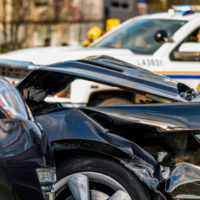Loss Of Control Wreck Kills Ft. Pierce Man

In October 2018, a teenager lost control of her car, careened across traffic, and smacked into an oncoming vehicle.
The crash occurred near the intersection of Greenbrier Drive and South COngress Avenue. According to police and witnesses, a 17-year-old woman lost control of her 2007 Toyota and crossed into oncoming traffic. She collided with a 23-year-old man who was stopped in his car waiting to make a right turn.
He was pronounced dead at the scene, and first responders rushed the young woman to a nearby hospital with serious injuries.
First Party Liability in Port St. Lucie Car Crash Cases
Loss of control crashes like the one described above almost always involve either negligence or negligence per se. These are the two most common theories of recovery in Port St. Lucie vehicle collision claims.
Negligence is essentially a lack of care. Most noncommercial drivers have a duty of reasonable care. They must obey the rules of the road and drive defensively. If they breach that duty, and that breach causes injury, they are generally liable for damages.
In loss of control cases, negligence may come from several different sources, including:
- Speed: Many drivers take curves too quickly and then overcompensate by oversteering. That causes loss of control. Note that drivers, especially inexperienced ones, do not need to be travelling over the speed limit to trigger this chain of events.
- Medical Episode: Diabetes, heart disease, epilepsy, and a number of other conditions can all cause a sudden loss of consciousness. In many cases, only the driver knows that s/he has a possibly debilitating condition.
- Fatigue: A significant number of drivers admit that they have been so tired that they have fallen asleep while driving. Much like unconsciousness, even a moment or two of sleep almost always causes a loss of control.
Victim/plaintiffs must establish negligence by a preponderance of the evidence (more likely than not). So, circumstantial evidence of excessive speed, a medical episode, or whatever is usually sufficient. For example, a driver may have received an epilepsy or other diagnosis from a doctor.
In some other cases, the law establishes the standard of care. Florida law clearly states that drivers must always operate on the right side of the road. So, if they cross over into oncoming traffic, the negligence per se doctrine may apply. Tortfeasors (negligent drivers) are liable for damages as a matter of law if:
- They violate a safety law, and
- That violation substantially causes injury.
In some cases, the negligence per se rule only creates a presumption of negligence. The victim/plaintiff must introduce additional evidence to establish liability.
Third Party Liability in Port St. Lucie Vehicle Collision Cases
People under 18 cannot own vehicles or other property. So, owner liability often applies in these cases. Vehicle owners are liable for damages if they allow incompetent drivers to use their vehicles and these drivers cause car crashes.
The victim/plaintiff must also establish knowledge in negligent entrustment cases. Knowledge of incompetence might come from:
- Statements the tortfeasor made about prior at-fault accidents,
- Being in the car with the tortfeasor on a prior occasion, or
- Knowledge that the tortfeasor is violating a drivers’ license restriction (g. no night driving).
Additionally, people with no valid drivers’ licenses are usually incompetent as a matter of law, no matter how much driving experience they have.
Connect With Dedicated Lawyers
Substantial compensation may be available in loss-of-control car crash cases. For a free consultation with an experienced personal injury attorney in Port St. Lucie, contact Eighmie Law Firm, P.A. After-hours visits are available.
Resource:
tcpalm.com/story/news/crime/st-lucie-county/2018/10/22/nicholas-woodward-23-fort-pierce-killed-3-car-crash-palm-beach-county/1726558002/


